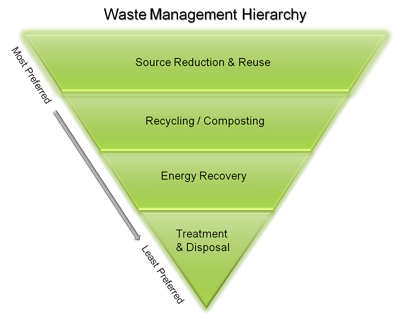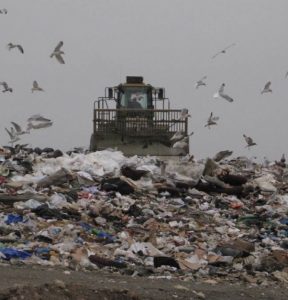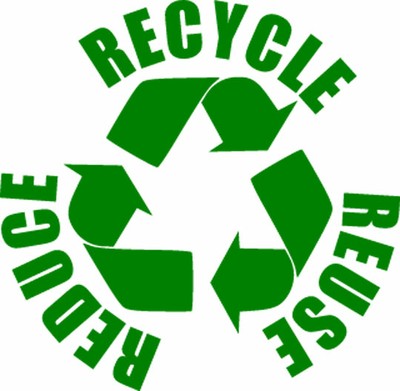Materials Management (Solid Waste) in Maine

Materials Management is a term that attempts to capture the overall life cycle of materials from raw materials, to products, to end disposal. It combines all aspects of solid waste with all forms of diversion to establish a systems approach to this complex topic. Solid waste is a significant sustainability challenge in Maine. This issue combines ecological concerns about resource degradation, pollution and greenhouse gas emissions with economic concerns centered on both wasted resources and the short- and long-term investments required to reduce waste and prevent the loss of valuable materials, energy and nutrients. There are also significant social dimensions associated with waste including the siting of landfills and concerns about whose interests are served by contemporary and potential waste management practices (public/private; urban/rural; north/south; etc).
Given the current and future challenges associated with materials management in Maine, the Senator George J. Mitchell Center for Sustainable Solutions at the University of Maine has assembled a team of interdisciplinary researchers to engage the diverse group of stakeholders that materials management impacts. The team is comprised of an environmental and economic anthropologist, an ecologist, economists, engineers, a community social psychologist, a modeler, and a water specialist.
 Stakeholder concerns have deeply shaped our focus on this topic. We have heard from local municipalities, state government, tribal nations, residents who live near operating and proposed solid waste sites, and providers of solid waste services that this is an increasingly urgent sustainability issue. At current rates of waste generation, landfill space will continue to be a revolving crisis. Making the matters worse, state subsidies for waste-to-energy incinerators will expire in 2018 and their operators suggest that this will significantly increase the cost of disposal and result in more waste being directly landfilled. Despite these urgent problems, our citizens, industries and the public sector continue to produce high quantities of waste.
Stakeholder concerns have deeply shaped our focus on this topic. We have heard from local municipalities, state government, tribal nations, residents who live near operating and proposed solid waste sites, and providers of solid waste services that this is an increasingly urgent sustainability issue. At current rates of waste generation, landfill space will continue to be a revolving crisis. Making the matters worse, state subsidies for waste-to-energy incinerators will expire in 2018 and their operators suggest that this will significantly increase the cost of disposal and result in more waste being directly landfilled. Despite these urgent problems, our citizens, industries and the public sector continue to produce high quantities of waste.
A team, with access to scientific data and research expertise related to materials management, is needed to assist stakeholders in the process of:
 Summarizing the complex history of waste management in Maine to avoid past mistakes and learn from past successes;
Summarizing the complex history of waste management in Maine to avoid past mistakes and learn from past successes;- Engage stakeholders and create a map of stakeholder barriers, needs, and opportunities;
- Bring together groups to identify solutions that are focused on policy and guided by research;
- Carry out research to fill identified information gaps;
- Find ways to innovate around lessons from Maine’s deep culture of thrift, ingenuity and reuse;
- Form groups to work on projects, policy proposals, and other methods to shape the end-destination of materials in the waste stream.
For additional information contact Travis Blackmer.
